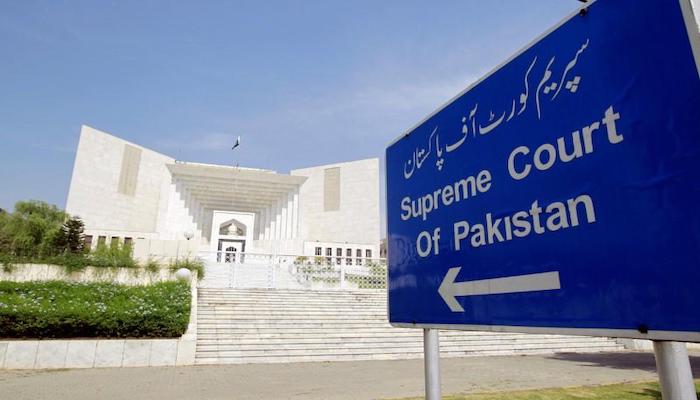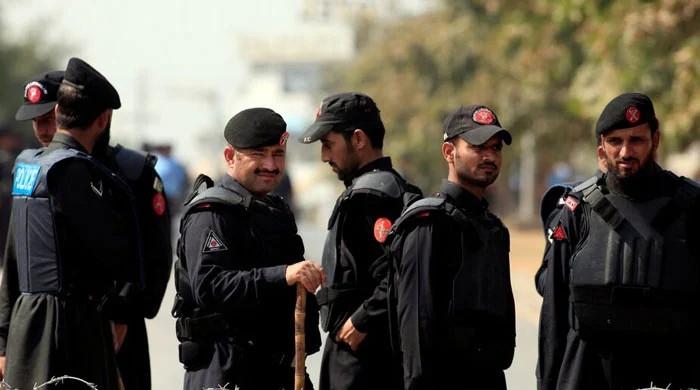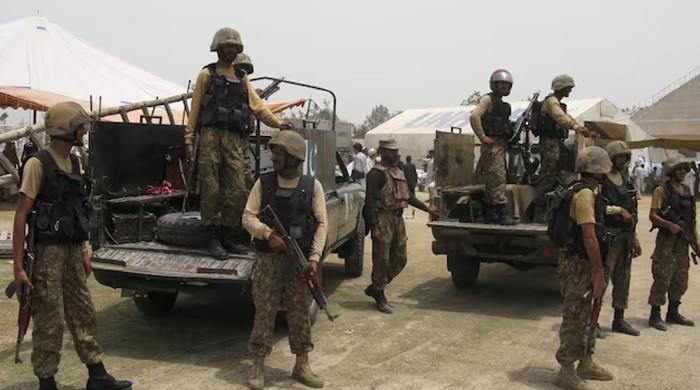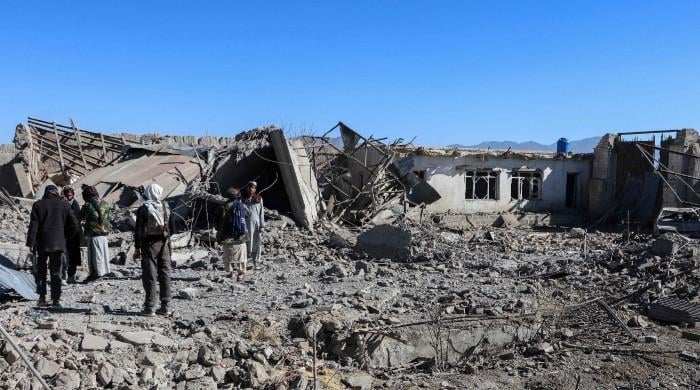Twice in a day: CBC faces Supreme Court's wrath at Karachi registry
CJP Gulzar Ahmed-led bench irked over Clifton Cantonment Board's failure to supply drinking water to DHA residents
December 30, 2020

- CBC given two weeks to inform court on water supply requirement for DHA residents
- Top court irked over CBC selling federal land
- CBC reprimanded for allowing private buildings on cantonment land
KARACHI: The Supreme Court on Wednesday came down hard on the Cantonment Board Clifton (CBC) over its failure to provide clean drinking water to the residents of Defence Housing Authority (DHA) in Karachi.
A three-member bench led by Chief Justice of Pakistan (CJP) Gulzar Ahmed, comprising Justice Sajjad Ali Shah and Justice Qazi Muhammad Amin Ahmed, heard a suo-motu case pertaining to the provision of drinking water in Karachi’s DHA area.
During the hearing, CBC chief executive officer (CEO) informed the bench that it relied on the Karachi Water and Sewerage Board (KWSB) for water supply.
“You say you rely on the waterboard, but are you aware what happens at the water board? When an army major finds no water at his home, he goes and closes the water board. They even get water for their gardens. Let us see what happens when a major gets no water supply living in DHA,” remarked the top judge.
“Lines have been drawn. There are two pipelines: one remains dry while the other supplies water. People like us have been given the water line with no supply, forcing us to buy water tankers.”
The court sought a detailed report on the matter from the KWSB within two weeks and directed CBC to appraise the bench on water requirement for the area’s residents.
KCR revival: SC issues contempt notice to Pakistan Railways, Sindh govt
“Is nobody watching the CBC?”
In another case, the bench issued a notice to the Attorney General of Pakistan (AGP) Khalid Javed Khan after being irked by the cantonment board selling federal land.
In a case related to the P&T Colony in Karachi’s Gizri area, the apex court questioned how the CBC could sell land that belongs to the federal government and allow the building of a private housing society on it.
“In what capacity did the CBC allow a naval society on land owned by the federal government? How can the cantonment board sell land to a private owner? Is there no law in the country? Is nobody keeping track of the CBC? Is this why the land was allotted to Karsaz?” questioned the CJP.
The top judge observed that the Delhi Colony, Punjab Colony and P&T Colony areas have deteriorated over the years. “After every second house there is a building compromising peoples’ privacy. We come to the city every two months and see a new 10-story building. They construct buildings but there is no water or electricity.”
“The P&T Colony has been turned into slums,” he remarked.
The top court observed that the P&T Colony has been built on federal land and does not qualify as a private property, adding that private buildings cannot be constructed on cantonment land.
The bench issued a notice to the attorney general and ordered the removal of illegal construction from the P&T Colony and demolish buildings near the Gizri bridge.
Also read: Go home if you do not have authority, SC slams Karachi mayor
Karachi Gymkhana’s tennis court
In a separate case, the Karachi Gymkhana approached the apex court in a matter pertaining to the construction of a tennis court.
The counsel said KG is a cultural heritage but does not come under protected heritage hence construction is allowed. When asked what they wanted to build, the lawyer said a tennis court would be constructed “up”.
“What do you mean up? In the sky?” asked Justice Shah. To which the lawyer explained that the tennis court would be constructed on top floors and the gymkhana had given the contract to renowned architects.
The lawyer requested the bench to set aside a restraining order issued by the Sindh High Court in a case pertaining to the construction and also direct it to expediate the trial.
The lawyer claimed the case against KG was made after it refused membership to a commissioner’s acquaintances.
The hearing was adjourned.











